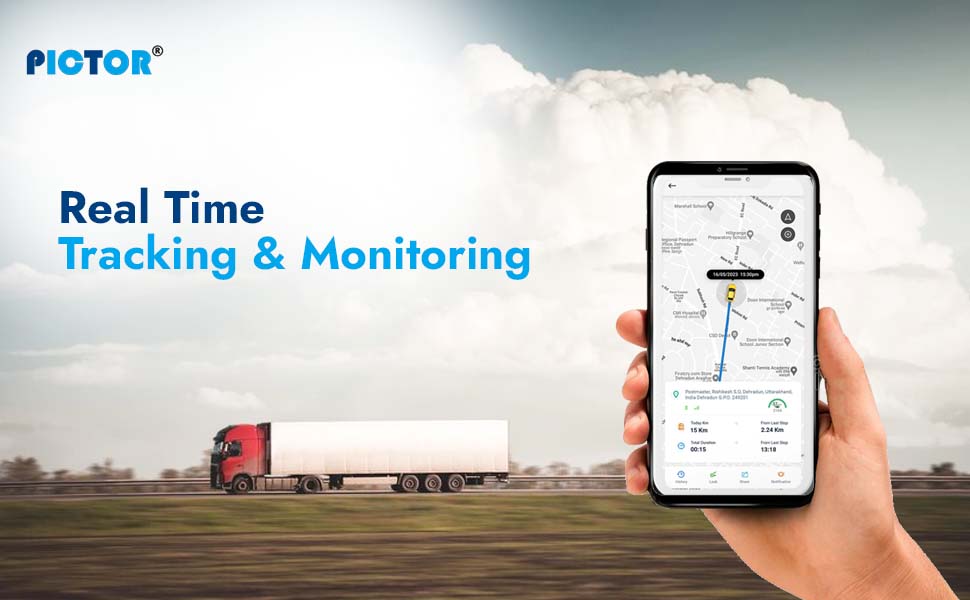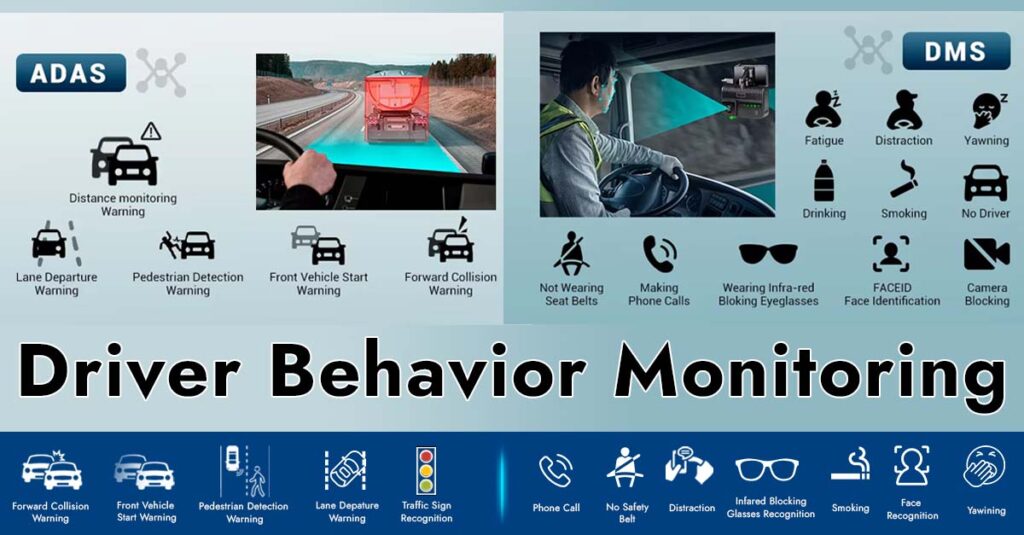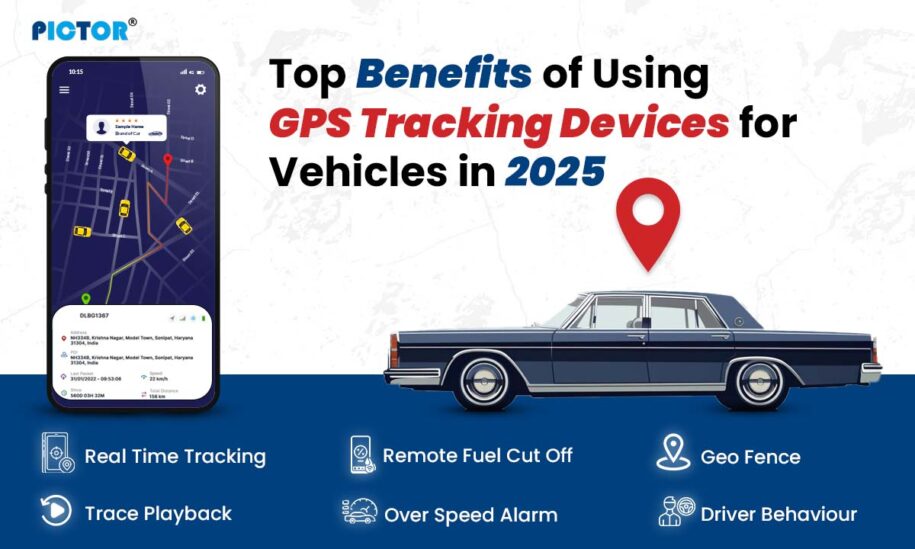Incredible Benefits of Using GPS Tracking Devices for Vehicles in 2025
As we move into 2025, the advancements in vehicle technology continue to enhance not only how we drive but also how we manage and secure our vehicles. GPS tracking devices have emerged as a critical tool for individual car owners and fleet managers alike. This blog will explore the essential benefits of using these devices, from heightened security features that help prevent theft to improved efficiency in fleet operations and reduced operational costs. We’ll also discuss how real-time tracking can aid in better route management, ensuring drivers can avoid congested routes and reach their destinations faster. Whether you’re looking to safeguard your personal vehicle or optimize a fleet, understanding the capabilities of modern GPS tracking devices is more important than ever.
Additionally, GPS tracking devices provide valuable data insights that can drive better decision-making. You can generate reports on driver performance, fuel consumption, vehicle maintenance, and more, allowing you to identify areas for improvement and optimize your operations for increased efficiency.
Don’t get left behind. Embrace the power of GPS tracking devices for vehicles in 2025 and unlock the full potential of your fleet management.
Improved vehicle security and theft prevention
In today’s world, vehicle theft is a significant concern for car owners and businesses alike. With the rise of advanced technology, GPS tracking devices have become essential tools for enhancing vehicle security. One of the primary benefits of these devices is their ability to provide real-time location data. This means that if a vehicle is stolen, owners can quickly track its movements and share this information with law enforcement authorities. By utilizing GPS tracking, the chances of recovering stolen vehicles significantly increase, giving owners peace of mind knowing they can act swiftly in case of theft.

Moreover, many modern GPS tracking systems offer geofencing capabilities. This feature allows owners to set virtual boundaries for their vehicles. If the vehicle exits these predetermined zones, the owner receives an instant alert. This proactive approach to security not only helps in preventing theft but also aids in monitoring unauthorized usage. Fleet managers can ensure that their vehicles are used within the designated areas, reducing the risk of misuse and potential liability issues.
Furthermore, some GPS tracking devices come equipped with an immobilizer feature, which can disable the vehicle remotely if it’s reported stolen. This added layer of security means that thieves can’t easily drive away with the vehicle. By integrating such advanced features, GPS tracking devices are transforming vehicle security measures, making it increasingly difficult for criminals to succeed in their endeavors.
Real-time tracking and monitoring of vehicles
Real-time tracking is one of the most compelling advantages of GPS tracking devices for vehicles. This technology allows owners and fleet managers to monitor their vehicles at any moment, providing invaluable insights into their location and movement patterns. With access to real-time data, businesses can make informed decisions about their operations, such as rerouting vehicles during traffic congestion or emergency situations, thereby improving overall efficiency.

In addition to location tracking, many GPS systems offer detailed analytics about vehicle usage, such as speed, idle time, and travel routes. This information can be crucial for identifying inefficiencies in fleet operations. For instance, if a vehicle is consistently idling for extended periods, managers can investigate the cause and implement strategies to reduce idle time, leading to improved fuel efficiency and reduced wear on the vehicle.
Furthermore, real-time tracking enhances safety for both drivers and passengers. In the event of an accident or breakdown, immediate access to location information allows for quicker response times from emergency services or roadside assistance. This capability not only protects the well-being of drivers but also minimizes disruption to operations, ensuring that businesses can maintain their schedules and commitments to customers.
Optimized route planning and improved fleet management
Optimizing route planning is another significant benefit offered by GPS tracking devices. These systems provide valuable data that helps fleet managers identify the most efficient routes for their drivers. By analyzing traffic patterns, road conditions, and historical data, GPS technology can suggest the best paths to take, helping to minimize travel time and fuel consumption. This optimization ultimately leads to enhanced productivity and reduced operational costs for businesses.

Additionally, GPS tracking devices can assist in dynamic rerouting based on real-time traffic updates. If a traffic jam, accident, or road closure is detected, the system can automatically suggest alternative routes to drivers. This flexibility not only helps drivers avoid delays but also ensures that deliveries and services are completed on time, leading to increased customer satisfaction. Fleet managers can use this technology to maintain a competitive edge, ensuring that their operations run smoothly even in challenging conditions.
Moreover, with efficient route planning, businesses can also lower their carbon footprint. By reducing unnecessary mileage and optimizing fuel usage, organizations contribute to more sustainable practices while also achieving cost savings. In an era where environmental responsibility is paramount, leveraging GPS tracking for route optimization aligns with corporate social responsibility goals and helps businesses demonstrate their commitment to sustainability.
Enhanced driver safety and behavior monitoring
Driver safety is a critical aspect of fleet management, and GPS tracking devices play a vital role in promoting safe driving practices. These systems can monitor various driving behaviors, such as speed, acceleration, braking patterns, and cornering. By analyzing this data, fleet managers can identify risky behavior and address it through targeted training and coaching. As a result, companies can foster a culture of safety, reducing the likelihood of accidents and ensuring the well-being of their drivers.

In addition to behavior monitoring, many GPS systems provide features that promote safe driving. For instance, some devices offer real-time alerts for excessive speeding or aggressive driving behavior. By notifying drivers of their performance in real-time, they can make immediate adjustments to their driving style, leading to safer road practices. This proactive approach not only protects drivers but also reduces the risk of liability for the company.
Furthermore, enhanced driver safety has financial implications as well. Fewer accidents lead to lower insurance premiums and reduced costs associated with vehicle repairs and replacements. By investing in GPS tracking technology, businesses can create safer driving environments and save money in the long run. The combination of safety measures and cost savings makes GPS tracking an indispensable tool for any fleet operation
Cost savings through fuel efficiency and maintenance optimization
One of the most significant advantages of utilizing GPS tracking devices is the potential for substantial cost savings. Effective fuel management is crucial for businesses that rely on vehicles for their operations. GPS tracking systems provide insights into fuel consumption patterns, enabling fleet managers to identify inefficiencies and implement strategies to optimize fuel usage. By monitoring driver behavior, such as excessive speeding or idling, companies can encourage more fuel-efficient driving practices, resulting in lower fuel costs.

Additionally, GPS data can aid in vehicle maintenance optimization. Regular maintenance is essential for prolonging the life of vehicles and preventing costly breakdowns. GPS tracking systems can track mileage and alert fleet managers when vehicles are due for servicing, ensuring that maintenance schedules are adhered to. This proactive approach helps to avoid unexpected repairs and extends the lifespan of the fleet, ultimately resulting in significant savings for businesses.
Moreover, by reducing fuel consumption and maintenance costs, companies can allocate their resources more effectively. The savings realized from improved fuel efficiency can be reinvested into other areas of the business, such as employee training or upgrading technology. In this way, GPS tracking devices not only contribute to immediate cost reductions but also support long-term growth and sustainability for organizations.
Improved customer service and satisfaction
Customer service is a cornerstone of any successful business, and GPS tracking technology can significantly enhance the customer experience. With real-time tracking capabilities, businesses can provide accurate delivery estimates to customers, reducing uncertainty and improving communication. This transparency fosters trust and reliability, as customers appreciate knowing when to expect their deliveries. By keeping clients informed, companies can enhance their reputation and build stronger relationships with their customer base.

Additionally, GPS tracking systems enable businesses to respond quickly to customer inquiries regarding delivery status. When customers have questions or concerns, having immediate access to tracking data allows customer service representatives to provide accurate and timely information. This responsiveness not only helps resolve issues promptly but also demonstrates a commitment to customer satisfaction, which can lead to repeat business and positive word-of-mouth referrals.
Furthermore, the ability to optimize routes and reduce delivery times directly impacts customer satisfaction. By ensuring that products arrive on time and in excellent condition, companies can exceed customer expectations. Satisfied customers are more likely to become loyal clients, contributing to long-term success. In a competitive market, leveraging GPS technology for improved customer service can be a significant differentiator, allowing businesses to stand out from their competitors.
Compliance with regulations and insurance requirements
As businesses operate within a complex regulatory environment, compliance is essential for maintaining smooth operations. GPS tracking devices can assist organizations in adhering to various regulations related to transportation, safety, and environmental standards. For instance, many jurisdictions require businesses to maintain accurate records of vehicle usage and maintenance. GPS systems streamline this process by automatically recording data, making it easier to generate reports that demonstrate compliance.

Moreover, in industries such as trucking and logistics, strict regulations govern driver hours of service (HOS) to prevent fatigue-related accidents. GPS tracking devices can monitor driving patterns and ensure that drivers adhere to HOS regulations. By maintaining compliance, businesses can avoid costly fines and legal issues, while also promoting a culture of safety within their operations.
Additionally, insurance companies often require businesses to implement safety measures to qualify for lower premiums. Utilizing GPS tracking devices demonstrates a commitment to safety and can lead to reduced insurance costs. By showcasing a proactive approach to risk management, companies can negotiate better terms with their insurers, further enhancing their bottom line. In this way, GPS tracking not only aids in compliance but also serves as a strategic advantage in managing insurance requirements.
Integration with other business systems and data analysis
The integration of GPS tracking devices with other business systems is becoming increasingly vital for organizations looking to optimize their operations. Many modern GPS systems can seamlessly connect with fleet management software, accounting systems, and customer relationship management (CRM) platforms. This interconnectedness allows for a holistic view of operations, enabling businesses to make informed decisions based on comprehensive data analysis.

By combining GPS tracking data with other operational metrics, companies can identify trends and areas for improvement. For example, analyzing fuel consumption data alongside vehicle maintenance records can reveal inefficiencies and help fleet managers implement targeted strategies for optimization. Additionally, integrating customer service data with GPS tracking can enhance the overall customer experience by aligning delivery schedules with customer preferences and expectations.
Furthermore, advanced data analysis capabilities offered by GPS tracking systems allow businesses to generate insightful reports. These reports can provide key performance indicators (KPIs) related to fleet operations, driver performance, and maintenance schedules. By leveraging this data, organizations can identify opportunities for improvement, set measurable goals, and track progress over time. The ability to analyze and act on data insights positions businesses for success in an increasingly competitive landscape.
Conclusion and future trends in GPS tracking technology
As we look towards the future, the role of GPS tracking devices in vehicle management will only become more pronounced. The advancements in technology, such as the integration of artificial intelligence and machine learning, promise to enhance the capabilities of GPS tracking systems. For instance, predictive analytics can provide insights into potential maintenance issues before they become critical, allowing businesses to take proactive measures and reduce downtime.
Moreover, the growing emphasis on sustainability will shape the evolution of GPS tracking technology. Businesses are increasingly seeking ways to minimize their environmental impact, and GPS tracking can facilitate this by optimizing routes and reducing fuel consumption. As technology continues to advance, we can expect new features that promote eco-friendly driving practices and support corporate social responsibility initiatives.
In addition, the expansion of smart city initiatives will further integrate GPS tracking systems into the urban landscape. As cities become more connected, the potential for collaboration between GPS tracking technology and other smart systems will enhance traffic management, improve public transportation efficiency, and contribute to safer roadways. The future of GPS tracking devices is bright, with the promise of even greater benefits for vehicle security, operational efficiency, and customer satisfaction. Embracing these technologies now positions businesses for success in an ever-evolving landscape, ensuring they remain competitive and effective in managing their fleets.
Pictor Telematics: Leading the Way in GPS Tracking and Telematics Solutions

Leave a Reply